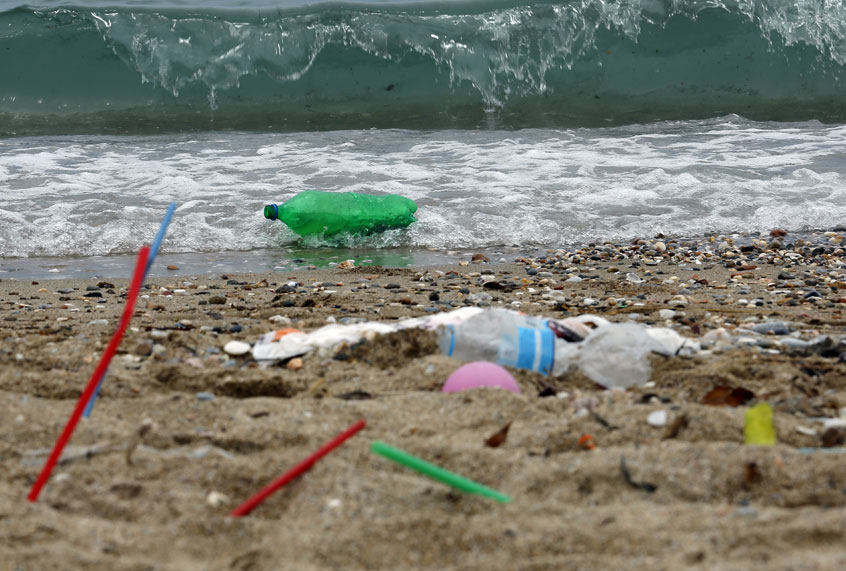The business world rarely yields good news, at least when it comes to environmental issues, so this recent story from PR Newswire was quite welcome. It says that the market for biodegradable plastic packaging was valued at $3.97 billion as of last year and is expected to reach $10.3 billion by 2024. At a time when normal (read: non-biodegradable) plastics are polluting our oceans, poisoning our bodies and threatening life on this planet in a manner surpassed only by climate change, this is good news indeed.
Yet the technology to create biodegradable plastics is not new. Indeed, it has existed for more than forty years. Given how crucial such technology is, why has it taken so long for it to become popular? Are there political barriers to it becoming prevalent? What does it say that, during the deepest submarine dive (to the bottom of the Mariana Trench), explorers found a plastic bag?
To learn more, Salon reached out to Ramani Narayan, a professor at Michigan State University’s College of Engineering. The main takeaway from this conversation was that — although biodegradable plastics are not a panacea for what ails our planet — there is no sound economic or ecological reason for our global society to not aggressively pursue using them.
The following interview was conducted by email.
In the 1975 novel “Ecotopia” author Ernest Callenbach described a world in which everything was biodegradable or compostable, one that was based on technology which existed at the time. Why did this not become a reality over the past 44 years?
Design and nature of materials changed – plastics became the material of choice — stronger, lighter, cheaper, longer lasting, impervious to microbial action, moisture etc — however, we never worried or bothered about the impact of these new materials at its end-of-life. Because we did not manage its end-of-life, these single-use, disposable plastics soon found itself in natural environments including the oceans. The very properties that made plastics the material of choice became a problem in the environment — they were not biodegradable at rate and time to be removed from the environment, their light weight allowed it to be blown and carried to remote corners causing unintended consequences.
Are there technological, scientific or economic limits to what can be achieved on this front today?
Plastics offers considerable benefits to society — think of lightweight safety helmets, glasses, preserving and protecting food and industrial products, hygiene and many more valuable attributes. The missing link is a viable end-of-life for plastics and other materials, creating a circular loop. The Ellen MacArthur Foundation provides a blueprint for change to a “circular economy” — 100% reusable, recyclable, or compostable plastic packaging by 2025
Are there political limits to which can be achieved on this front today?
Politics needs to be set aside, and logical closed loop circular materials approaches [are] needed.
What have been the ecological consequences of humanity not transitioning to biodegradable products over the past 44 years?
Biodegradability is not a magical solution to the problem of plastics and other bio-wastes. Biodegradability in concert with managed, closed-loop disposal systems like composting/anaerobic digestion or soil (agricultural products) resulting in complete removal from the environmental in a short time defined by the disposal environment can be a viable and responsible “end-of-life” solution in harmony with Ellen MacArthur Foundation Circularity model.
However, there are many misleading and unqualified use of the term “biodegradable” to describe products — like the oxo- and organic additives claimed to make conventional plastics “biodegradable”.
Is any of that damage permanent?
Clearly, there is an urgency — but not all is lost, and much activity is taking place in the space.


